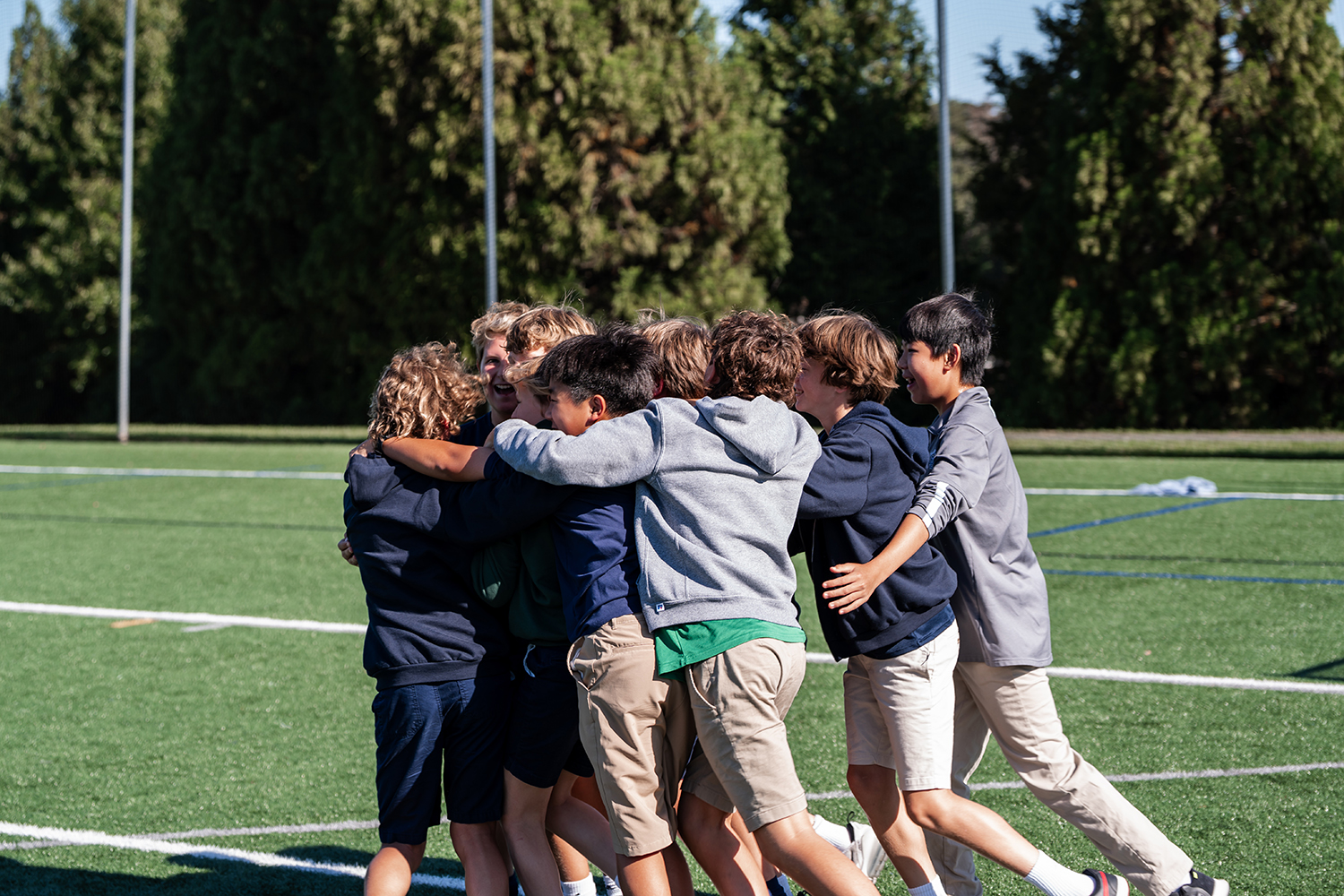LEARN MORE ABOUT FLINT HILL
HUSKY HIGHLIGHTS

November 7, 2023
By Ann Bazzarone, Middle School Learning Specialist
Stuck in the Middle: 5 Strategies for Helping Your Tween Find Balance
If someone had told me when my son was in middle school that he would grow up to become fluent in a second language, complete undergrad with a double major, go to an excellent law school and land a job with a top international law firm in NYC, I would NEVER have believed them. After all, this was the same kid who lost so many pairs of shoes in middle school that when he graduated from 8th grade I forced him to wear the two left shoes he had foraged from the school’s lost and found, as I simply refused to buy him another pair. To parents navigating these crazy middle school years, I hereby pass along the following tips for how to achieve home-life balance:
1. Just breathe
No matter what anyone tells you, what stories you hear, or what roller coasters you and your child endure, chances are it will all be well in the end. Remember to run the right race. Do not get stuck thinking your child has to get straight A’s, make the best sports team, take the honors classes and never fail at anything or life will be ruined. Middle school is the time to take risks, explore possibilities, and enjoy the process rather than obsess over end results. After all, no one cares what grade you got on a 7th grade math test — the same will be true when your child is your age.
2. Be Wise About Tech Usage
Now is the time to establish healthy boundaries and practices around technology. Our phones and computers are ostensibly tools of connection and communication. Don’t let them become roadblocks and logjams. This involves establishing family guidelines, parents modeling healthy tech habits, and time set aside away from technology. Creating “phone jails,” limiting gaming time, exploring parental control options, and consciously monitoring your child’s tech practices are all helpful strategies to make technology work for you, not the other way around.
3. Manage the Clock
Sitting between childhood and full-blown teenage-dom, middle school is a time to explore and establish afternoon routines that give enough time for homework, extracurricular activities, family time, and healthy sleeping/eating habits. BUT — recognize this is an ongoing process. Learning how to study effectively and manage after-school assignments is an important skill, but no middle schooler’s life should be filled with hours and hours of homework. If your afternoons and evenings seem out of balance, take an inventory and make sure your time allotments match your real priorities. Also, make sure to block out family time. Board games, regular dinners together, shared experiences, and activities with extended family networks are all great ways to build memories and prioritize relationships.
4. Keep Communicating
Middle school is when kids perfect not only the “eye roll” but the “grunt,” when asked a simple question like, “Did you enjoy your day?” One great tactic for avoiding such responses is to make use of open-ended questions. When challenges emerge, asking “What could you do differently next time?” is much better than “What the heck happened?” If your child asks for homework help, before diving in with the answer, simply ask, “What have you tried so far?” If he or she gets in the car and you can tell trouble with friends has been brewing, try, “It seems like you are ______ .” Fill in the blank with distracted, preoccupied, sad, frustrated ... then wait until your child offers up an answer. If that means you have to drive around your neighborhood five times before you get a response, so be it. Asking for “roses and thorns” at the dinner table is another great way to open up conversations.
5. Trust the Team.
Your child’s teachers deal with more middle school hormones than you deal with at home. Rely on them to help you understand what is developmentally “normal,” and what might be concerning. They can also be a great resource for strategies to navigate those up-and-down, nerve-wracking, ever-changing yet joyful middle school years.
Ann Bazzarone is a Middle School Learning Specialist at Flint Hill School. She has been working with students with learning differences for over a decade. She is the mother of two grown children, and she has lived to tell the tale.
LEARN MORE ABOUT FLINT HILL
Fill out the form to receive updates from our team.
RECOMMENDED FOR YOU
Director of the Upper School Don Paige shares six key pieces of advice he wishes parents knew before their students start high school.
A VAIS committee completed its 10-Year Accreditation Visit in April 2024. The committee reported its immediate findings in this short presentation to faculty and staff.
Middle school lays the foundation for the social-emotional and organizational skills your child will need for college success, and that doesn’t come from test prep...
As a middle school parent, your role is not to be completely hands-off and let them fend for themselves in every way, nor is it...






